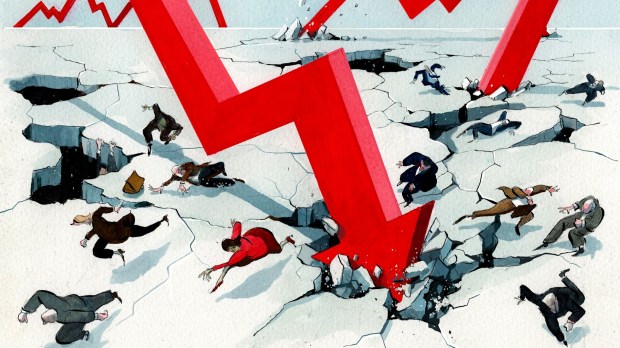It’s the way the world’s going, but still it looks quite impressive that the number of women directors of FTSE100 companies has risen from 135 in 2011 (when Vince Cable, as Business Secretary, began agitating on the subject) to 349 today — representing a third of all blue-chip boardroom seats. It’s not long since that proportion was below 10 per cent. But is the corporate patriarchy truly in retreat, or is this still a matter of reluctant window-dressing by the old boys’ network who have prime responsibility for populating boards? I’m reminded of a FTSE boss I once lunched with who said: ‘Oh yes, Vince wrote us a pretty stiff letter but luckily we found a splendid girl to put on the board — [she’s] one of the boys really, loves her shootin’ and everything.’
Veteran businesswomen were as one this week in telling me that the real test of this culture change is at executive, rather than non-executive, level. Other than in human resources and in-house legal departments, there are still far too few women being given the chance to run major parts of listed companies. As the TUC’s Frances O’Grady pointed out: ‘Men are still seven times more likely to be finance directors than women.’
‘It’s the chairman’s job, not the government’s or anyone else’s’ to drive boardroom balance, said one of my sources, and ‘it’s the job of the whole board to hold the chief executive’s feet to the fire’ by demanding to know when the female management talent is going to be allowed to break through — and whether there’s still a high-level gender pay gap. ‘Battle not won!’ emailed another. ‘Much more scrutiny needed of companies that think they’ve ticked the lady box.’ ‘Mind you,’ added a third, ‘it’s my fiftysomething male friends who really find it tough to get jobs these days.’
Boris’s big ideas
Knee-jerk political gimmicks and flag-raising gestures come thick and fast from Downing Street — and the challenge is to spot whether any of them accidentally make sense. The bringing forward to 2035 of a ban on sales of new petrol, diesel and hybrid cars is a first case in point, seemingly pulled straight out of the hat to deflect criticism of Boris Johnson’s lack of attention to the forthcoming UN climate change summit in Glasgow — and to give him a chance to upstage Sir David Attenborough at the launch event.
Cue howls of anguish from car makers, among whom Jaguar Land Rover, a last beacon of British manufacturing and our major producer of gas-guzzling SUVs, looks likely to be worst hit. But what better way to galvanise the development of advanced batteries, bring down the cost of electric vehicles and spur the creation of nationwide plug-in networks than to set the whole industry an unfeasibly tight deadline? If the blue-sky statement is followed by judicious state aid (a device to which we’re told the Prime Minister has no ideological objection) it might just do the trick.
Johnson’s approval of HS2, overruling his own closest advisers, looks a lot more cynical, however. I can almost hear our former editor’s resonant voice in the cabinet room: ‘Look, chaps, sod it, we’ve already desecrated the Chilterns, we won’t be here by the time the cost doubles again, and we’ve got to throw some red meat sharpish at those bloody-minded northerners who voted for us. And wasn’t it Keynes — he’s our other guru these days, isn’t he, Dom? — who said government should pay people to dig holes in the ground and then fill them in again? We can always do that if we have to, like we seem to be doing with Crossrail…’
Then there was the sudden revival of the truly Johnsonian vision of a 21-mile bridge from south-west Scotland to Northern Ireland — in response to reports that Sinn Fein was about to do surprisingly well in the Irish general election, thereby catapulting the issue of a united Ireland up the political agenda. At £15-20 billion, it doesn’t sound wildly expensive and it would be shorter than several of the world’s existing bridges, even if they’re mostly in China. It would need 100 miles of new motorway to connect it to England, but what’s not to like? A retired naval officer tells me the safest way to pass through the raging channel between Portpatrick and Larne is 50 metres down in a nuclear submarine; but as Boris would undoubtedly say, never let the detail get in the way of a headline-grabbing distraction.
Swiss tea party
Imagine you’re a Swiss widow living in a nice lake-view apartment in the Zurich suburb of Herrliberg. You remember the pre-crash days when your late husband’s bundle of Credit Suisse shares were worth more than 80 Swiss francs each and delivered a 5 per cent dividend yield. Now — after the five-year tenure as chief executive of Tidjane Thiam, who was ousted by the banking giant’s board last week — they’re worth 13 Swiss francs and yielding 2 per cent.
You happen to know Thiam, at least by sight, because his home is also in Herrliberg and as you politely put it to your tea–drinking friends: ‘He’s from the Ivory Coast, you know.’ Perhaps you were even a guest at the local cocktail party at which he fell out noisily (over the matter of some view–spoiling trees in his garden) with his neighbour and former colleague Iqbal Khan, who Credit Suisse arranged to have tailed by private detectives after he left to join the rival UBS.
‘But Mr Thiam did steer the bank back to profit and get rid of its riskier investment banking activities,’ says one well-informed tea-drinker. ‘As any half-competent chief executive would have done in this phase of the cycle,’ you retort sharply. ‘And there was certainly no need to give him a 30 per cent pay rise last year when our shares were doing so badly.’
What on earth has happened to the sober and secretive Swiss banking profession we all grew up with, these ladies wonder; let’s hope for their sake that Credit Suisse’s new chief — the low-profile and long-serving insider Thomas Gottstein — heralds an era as dividend–rich as it is scandal-free.
Got something to add? Join the discussion and comment below.
Get 10 issues for just $10
Subscribe to The Spectator Australia today for the next 10 magazine issues, plus full online access, for just $10.
You might disagree with half of it, but you’ll enjoy reading all of it. Try your first month for free, then just $2 a week for the remainder of your first year.















Comments
Don't miss out
Join the conversation with other Spectator Australia readers. Subscribe to leave a comment.
SUBSCRIBEAlready a subscriber? Log in